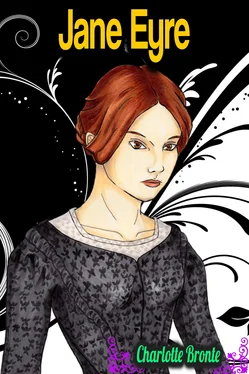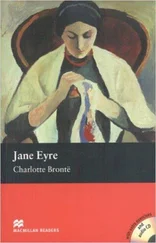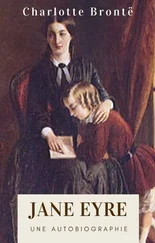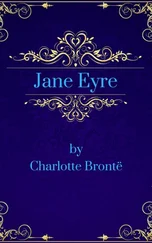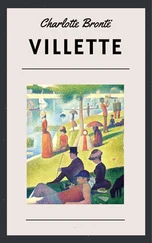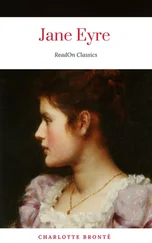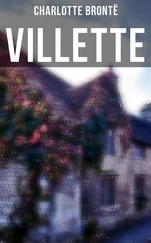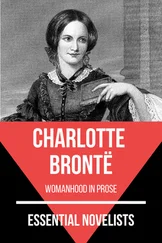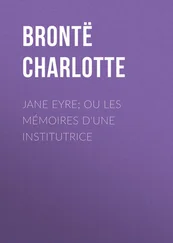1 ...6 7 8 10 11 12 ...31 Not being in a condition to remove his doubt, I only cast my eyes down on the two large feet planted on the rug, and sighed, wishing myself far enough away.
“I hope that sigh is from the heart, and that you repent of ever having been the occasion of discomfort to your excellent benefactress.”
“Benefactress! benefactress!” said I inwardly: “they all call Mrs. Reed my benefactress; if so, a benefactress is a disagreeable thing.”
“Do you say your prayers night and morning?” continued my interrogator.
“Yes, sir.”
“Do you read your Bible?”
“Sometimes.”
“With pleasure? Are you fond of it?”
“I like Revelations, and the book of Daniel, and Genesis and Samuel, and a little bit of Exodus, and some parts of Kings and Chronicles, and Job and Jonah.”
“And the Psalms? I hope you like them?”
“No, sir.”
“No? oh, shocking! I have a little boy, younger than you, who knows six Psalms by heart: and when you ask him which he would rather have, a gingerbread-nut to eat or a verse of a Psalm to learn, he says: ‘Oh! the verse of a Psalm! angels sing Psalms;’ says he, ‘I wish to be a little angel here below;’ he then gets two nuts in recompense for his infant piety.”
“Psalms are not interesting,” I remarked.
“That proves you have a wicked heart; and you must pray to God to change it: to give you a new and clean one: to take away your heart of stone and give you a heart of flesh.”
I was about to propound a question, touching the manner in which that operation of changing my heart was to be performed, when Mrs. Reed interposed, telling me to sit down; she then proceeded to carry on the conversation herself.
“Mr. Brocklehurst, I believe I intimated in the letter which I wrote to you three weeks ago, that this little girl has not quite the character and disposition I could wish: should you admit her into Lowood school, I should be glad if the superintendent and teachers were requested to keep a strict eye on her, and, above all, to guard against her worst fault, a tendency to deceit. I mention this in your hearing, Jane, that you may not attempt to impose on Mr. Brocklehurst.”
Well might I dread, well might I dislike Mrs. Reed; for it was her nature to wound me cruelly; never was I happy in her presence; however carefully I obeyed, however strenuously I strove to please her, my efforts were still repulsed and repaid by such sentences as the above. Now, uttered before a stranger, the accusation cut me to the heart; I dimly perceived that she was already obliterating hope from the new phase of existence which she destined me to enter; I felt, though I could not have expressed the feeling, that she was sowing aversion and unkindness along my future path; I saw myself transformed under Mr. Brocklehurst’s eye into an artful, noxious child, and what could I do to remedy the injury?
“Nothing, indeed,” thought I, as I struggled to repress a sob, and hastily wiped away some tears, the impotent evidences of my anguish.
“Deceit is, indeed, a sad fault in a child,” said Mr. Brocklehurst; “it is akin to falsehood, and all liars will have their portion in the lake burning with fire and brimstone; she shall, however, be watched, Mrs. Reed. I will speak to Miss Temple and the teachers.”
“I should wish her to be brought up in a manner suiting her prospects,” continued my benefactress; “to be made useful, to be kept humble: as for the vacations, she will, with your permission, spend them always at Lowood.”
“Your decisions are perfectly judicious, madam,” returned Mr. Brocklehurst. “Humility is a Christian grace, and one peculiarly appropriate to the pupils of Lowood; I, therefore, direct that especial care shall be bestowed on its cultivation amongst them. I have studied how best to mortify in them the worldly sentiment of pride; and, only the other day, I had a pleasing proof of my success. My second daughter, Augusta, went with her mama to visit the school, and on her return she exclaimed: ‘Oh, dear papa, how quiet and plain all the girls at Lowood look, with their hair combed behind their ears, and their long pinafores, and those little holland pockets outside their frocks—they are almost like poor people’s children! and,’ said she, ‘they looked at my dress and mama’s, as if they had never seen a silk gown before.’”
“This is the state of things I quite approve,” returned Mrs. Reed; “had I sought all England over, I could scarcely have found a system more exactly fitting a child like Jane Eyre. Consistency, my dear Mr. Brocklehurst; I advocate consistency in all things.”
“Consistency, madam, is the first of Christian duties; and it has been observed in every arrangement connected with the establishment of Lowood: plain fare, simple attire, unsophisticated accommodations, hardy and active habits; such is the order of the day in the house and its inhabitants.”
“Quite right, sir. I may then depend upon this child being received as a pupil at Lowood, and there being trained in conformity to her position and prospects?”
“Madam, you may: she shall be placed in that nursery of chosen plants, and I trust she will show herself grateful for the inestimable privilege of her election.”
“I will send her, then, as soon as possible, Mr. Brocklehurst; for, I assure you, I feel anxious to be relieved of a responsibility that was becoming too irksome.”
“No doubt, no doubt, madam; and now I wish you good morning. I shall return to Brocklehurst Hall in the course of a week or two: my good friend, the Archdeacon, will not permit me to leave him sooner. I shall send Miss Temple notice that she is to expect a new girl, so that there will be no difficulty about receiving her. Good-bye.”
“Good-bye, Mr. Brocklehurst; remember me to Mrs. and Miss Brocklehurst, and to Augusta and Theodore, and Master Broughton Brocklehurst.”
“I will, madam. Little girl, here is a book entitled the ‘Child’s Guide,’ read it with prayer, especially that part containing ‘An account of the awfully sudden death of Martha G—, a naughty child addicted to falsehood and deceit.’”
With these words Mr. Brocklehurst put into my hand a thin pamphlet sewn in a cover, and having rung for his carriage, he departed.
Mrs. Reed and I were left alone: some minutes passed in silence; she was sewing, I was watching her. Mrs. Reed might be at that time some six or seven and thirty; she was a woman of robust frame, square-shouldered and strong-limbed, not tall, and, though stout, not obese: she had a somewhat large face, the under jaw being much developed and very solid; her brow was low, her chin large and prominent, mouth and nose sufficiently regular; under her light eyebrows glimmered an eye devoid of ruth; her skin was dark and opaque, her hair nearly flaxen; her constitution was sound as a bell—illness never came near her; she was an exact, clever manager; her household and tenantry were thoroughly under her control; her children only at times defied her authority and laughed it to scorn; she dressed well, and had a presence and port calculated to set off handsome attire.
Sitting on a low stool, a few yards from her arm-chair, I examined her figure; I perused her features. In my hand I held the tract containing the sudden death of the Liar, to which narrative my attention had been pointed as to an appropriate warning. What had just passed; what Mrs. Reed had said concerning me to Mr. Brocklehurst; the whole tenor of their conversation, was recent, raw, and stinging in my mind; I had felt every word as acutely as I had heard it plainly, and a passion of resentment fomented now within me.
Mrs. Reed looked up from her work; her eye settled on mine, her fingers at the same time suspended their nimble movements.
Читать дальше
